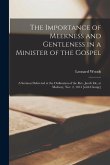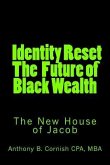Abraham is called "the Father" of a people, yet it is Jacob who bears the name "Israel." With this observation, Frank Carver begins his quest for an informed understanding of this notable patriarch. The approach in The Work of Jacob is that of the canonical book of Genesis: to adhere closely to what the biblical text relates of Jacob from his birth to the death of his father, Isaac. (An epilogue concludes the study with the death of Jacob.) The artistic quality of the biblical account coupled with the subtlety of the message suggests that the narrative does not want the reader to know too much. Jacob "works" but his is not the only effort that matters. The story line speaks of Jacob in terms of divine promise and blessing. This is not a comfortable read. Marred relationships are replete in the Genesis account. How can Jacob, a person marked by deceit and cunning, be compatible with divine blessing and election? Does not the name 'Jacob' itself ('to supplant') reveal his true identity? He strives to overcome others! Questions therefore rightly arise. Considerable care is given by Frank Carver to an exposition of the Genesis account with secondary resources drawn upon for context and meaning. The Work of Jacob flows with suspense and enough intrigue to tease even the most disinterested reader's curiosity. Bethel, Peniel, and personal relationships or the lack thereof characterize the account. Twin boys, Esau and Jacob, are at the heart of the story. Beginning in the womb, Jacob's adversary is his brother Esau. The divine oracle to Rebekah their mother that the older Esau will serve the younger Jacob underlies the conflict between the sons. So begins the pivotal currents that drive the rest of The Work of Jacob. Will the promise to Jacob of God's favor and land be realized now that he is in exile? Will Jacob be able to return to his homeland? And what of Esau's desire to murder his brother if he meets up with him? Esau's haunting threat looms behind every page of the book. Two major visions of God occur in Jacob's journey; both are considered pivotal. These events are taken as revelatory for Jacob's understanding of God but they also define the God that Jacob has come to know. The first vision takes place at Bethel in the form of a dream (28:10-17). Divine speech confronts Jacob for the first time: "I am the LORD, the God of Abraham your father and the God of Isaac; the land on which you lie I will give to you and to your offspring." Jacob will be sorely tested to rest content with the divine promise given the scheming of Laban, his mother's brother. Love will have to find its own way. The second vision occurs two decades later as Jacob works his way back to his homeland (32:24-30). The earlier promise given at Bethel is renewed with spiritual force and vigor as Jacob heads home. The pace of the biblical text slows down. A confrontation is on the horizon. Jacob expects the worst from Esau. "I will kill my brother" (27:41) losses none of its original force with the passage of time. Esau approaches Jacob and his party with four hundred men. And then the unexpected happens: "Esau ran to meet him and embraced him and fell on his neck and kissed him, and they wept" (33:4). Who would have thought it! Words of grace, of favor, of gift abound without explanation or accountability. Reconciliation moved in; estrangement moved out. More than Jacob's efforts and ways are behind his words as he says to Esau: "For truly to see your face is like seeing the face of God." Jacob is home, yet God is not through with him. He is to return to Bethel (35:1). Events associated with the location sum up all the long-range promises God made to him. A pillar of stone is placed there. Jacob's 'work' now as "Israel" becomes one of worship. His life has come full circle, from Bethel to Peniel to Bethel.

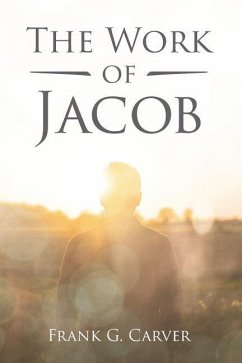
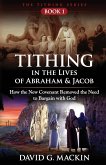

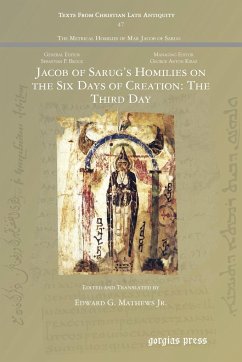
![The Frontier Missionary [microform]: a Memoir of the Life of the Rev. Jacob Bailey, A.M., Missionary at Pownalborough, Maine, Cornwallis and Annapolis The Frontier Missionary [microform]: a Memoir of the Life of the Rev. Jacob Bailey, A.M., Missionary at Pownalborough, Maine, Cornwallis and Annapolis](https://bilder.buecher.de/produkte/66/66145/66145784m.jpg)
